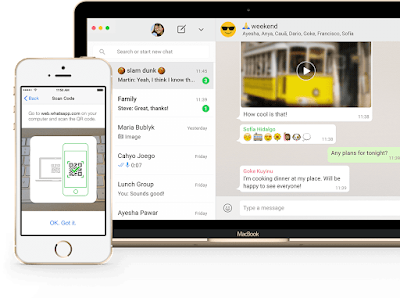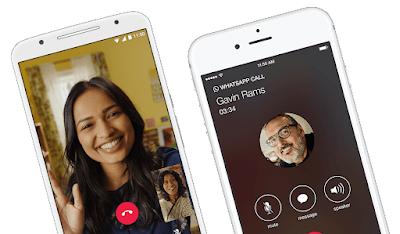Explore our library of help content for the WhatsApp Business Platform here. We want businesses to enjoy all the benefits of messaging their customers using WhatsApp Business, which includes the WhatsApp Business Platform and WhatsApp Business app. In order to ensure safe, high-quality conversations, it’s important that all businesses and Business Solution Providers understand both the WhatsApp Business and Commerce policies. Both of these policies apply to WhatsApp Business. The Business Policy broadly governs the acceptable use of WhatsApp Business products, and sets expectations for ensuring a quality customer experience. It helps us determine which business models and verticals we allow onto the platform. The Commerce Policy is used to govern whether businesses can sell their products and services within catalog, message threads, business profile, and message templates. We recommend that everyone using WhatsApp Business read both of WhatsApp’s Business and Commerce policies, but we also understand that sometimes there are additional questions about certain components of the policies, how we enforce policies, or how policies impact certain types of businesses.
Comply with the Business and Commerce Policies
Businesses that sell products and services prohibited by the Commerce policy can still use WhatsApp Business for messaging as long as they only use them for certain pre- and post-sales interactions.
Some examples of sales activities that aren’t allowed:
- Promoting prohibited products or services on their business profile
- Creating and sending templates on the WhatsApp Business Platform about selling prohibited products or services
- Engaging in the purchase of or transaction of prohibited products or services in-thread on WhatsApp, such as completing an order in-thread, collecting payment to initiate a purchase, updating an order, or sharing a receipt
We’ve provided some examples of allowable and non-allowable interactions between customers and businesses that sell products or services prohibited by the Commerce Policy. Allowable interactions
- Awareness: Sharing more additional product information a product or service or answering customer questions
- Awareness/Consideration/Care: Sharing a coupon or promotion with the user in-thread
- Consideration: Sharing a website link or phone number with a user who is interested in purchasing the product or service
Non-allowable interactions
- Purchase: User selects the products or services they want to purchase in-thread and business collects payment information on WhatsApp
- Purchase: Sending a notification for a receipt following the sale of a prohibited product or service
These limits on transacting in the sale of products and services on WhatsApp only apply to the categories prohibited in the Commerce Policy. Any product or service that is allowed to be sold according to the Commerce Policy, is allowed on WhatsApp Business. For example, t-shirts aren’t a restricted item, so they can be purchased using the WhatsApp Business Platform or WhatsApp Business app.
Establishing communication with customers
Per our Business Policy, businesses may only contact someone on WhatsApp if the person has: - given the business their mobile phone number
- agreed to be contacted by the business over WhatsApp
Confusing, deceiving, defrauding, misleading, spamming, or surprising people with business communications is a violation of our Business Policy. Additionally, businesses can’t share or ask people to share full length individual payment card numbers, financial account numbers, personal ID card numbers, or other sensitive identifiers. Customers must opt-in to chatting with the business in order for the business to send any business-initiated messages outside the 24-hour window on the WhatsApp Business Platform.
Note: If a user reaches out to a business to ask a question or find out more information, this does not imply opt-in. The business must still obtain opt-in from the user to receive future proactive messages on WhatsApp. Learn more about opt-in requirements and best practices in the Business Policy.
Navigate specific Commerce Policy categories
Some Commerce policy categories are more complex than others. Here is an overview of how to avoid Commerce policy violations for some of those categories.
Drugs, whether prescription, recreational, or otherwise
We aren’t allowing businesses whose primary business is directly selling and transacting in the sale of pharmaceutical drugs. This restriction applies to both prescription and over the counter drugs, irrespective of their global or local approval statuses. Pharmacies are prohibited from promoting or selling drugs, medical devices, and other goods prohibited by the Commerce Policy. These businesses are also prohibited from using WhatsApp Business for customer care messages that aren’t related to the administration of medical services. For example, prescriptions can be shared by doctors or other medical services. However, prescriptions can’t be directly sold within the WhatsApp platform. However, pharmacies with a separate clinical laboratory or patient care services can register those services on WhatsApp Business as long as they meet the following requirements:
- The WhatsApp Business account name refers to the medical service (for example, “Clinic”, “Laboratories”, “testing”, or “vaccine”.)
- The business’ website clearly states that they provide vaccination administration and/or the administration of medical testing
Pharmacies that provide medical services will be allowed to interact with customers in the same manner as other medical services, such as doctor’s offices and hospitals. Manufacturers and healthcare services who do not engage in direct sale are also allowed.
Some examples of approved medical service activities are:
- Sending personalized updates about a person’s eligibility to receive the vaccine
- Scheduling appointments for testing and vaccine administration
- Answering questions about testing and vaccines
- Establishing a chatbot to respond to frequently asked questions about their medical services, including COVID-19 and vaccine information
- Sending post-visit surveys and appointment follow-ups
Unsafe, ingestible supplements
Supplements are prohibited by the Commerce Policy, and aren’t allowed to be sold within catalog, Shops, message threads, business profile, and/or message templates. Some examples of prohibited supplements are:
- Anabolic steroids
- Chitosan
- Comfrey
- Dehydroepiandrosterone
- Ephedra
- Human growth hormones
- Protein bars and protein powder
- Vitamins
Digital services
Services like mobile recharges, cable TV packages, and internet packs are allowed to sell on WhatsApp.
Digital services whose primary business is offering subscriptions, downloadable content, or access to a digital content library can’t use WhatsApp. On a case-by-case basis, we may allow some businesses to use the WhatsApp Business Platform in a limited capacity for business communication.
Some examples of prohibited digital services are:
- Subscriptions to Streaming services
- Cloud storage
- VPN services
- Game currency
- Download codes
- Ebooks
- Audiobooks
Real, virtual, or fake currency
Real money refers to cash or cash equivalent instruments that have real world monetary value.
Some examples of prohibited real currency are:
- US Dollars
- Checks
- Prepaid debit cards
- Gift cards
Virtual currencies are issued by private entities, and do not commonly have real world monetary value outside of specific communities.
Some examples of virtual currency are:
- Game currency
- Cryptocurrency
Fake currencies refer to forged or counterfeited currency or financial instruments.
Alcohol
If the business’s primary business model is the sale of alcohol (including alcoholic beverages and kits for producing alcohol), they can’t use the WhatsApp platform to sell these products.
However, if a business sells alcohol along with other goods or alcohol-related items (such as glasses, coolers, wine bottle holders, and books or DVDs about alcohol) as part of its business model, then they may use the WhatsApp platform for messaging that’s not related to sales. They can’t list alcohol in product catalogs.
Weapons
If the business’s primary business model and function is the issue, sale, or use of weapons, ammunition, or explosives, they can’t use the WhatsApp platform to sell these products.
Some examples of prohibited weapons are:
- Firearms and firearm parts
- Paintball guns
- BB guns
- Fireworks
- Pepper spray
- Tasers
- Gun ranges
- Gun shows
However, if the sale of weapons is one component of the business model, or if the business promotes safety training or licenses for legal weapons, it may use the WhatsApp platform for messaging that’s not related to sales. They can’t list weapons, ammunition, and explosives in product catalogs.
It is up to the business to be compliant with applicable law. Review the Commerce Policy for an up-to-date list of goods and services that are prohibited from being sold or promoted on WhatsApp Business.
If a customer initiates a conversation about purchasing a good or service from a vertical that is prohibited by the Commerce policy, please tell the customer to connect with you on a different channel for those types of conversations in verticals where that is prohibited.
WhatsApp
Features
TEXTS
Simple,
Reliable Messaging
Message
your friends and family for free*. WhatsApp uses your phone's Internet
connection to send messages so you can avoid SMS fees
* Data
charges may apply. Contact your provider for details.
GROUP
CHAT
Groups to
keep in touch
Keep in
touch with the groups of people that matter the most, like your family or
coworkers. With group chats, you can share messages, photos, and videos with up
to 256 people at once. You can also name your group, mute or customize
notifications, and more.
WHATSAPP
ON WEB AND DESKTOP
Keep the
Conversation Going
With
WhatsApp on the web and desktop, you can seamlessly sync all of your chats to
your computer so that you can chat on whatever device is most convenient for
you. Download the desktop app or visit web.whatsapp.com to get started
WHATSAPP
VOICE AND VIDEO CALLS
Speak
Freely
With
voice calls, you can talk to your friends and family for free*, even if they're
in another country. And with free* video calls, you can have face-to-face
conversations for when voice or text just isn't enough. WhatsApp voice and video
calls use your phone's Internet connection, instead of your cell plan's voice
minutes, so you don't have to worry about expensive calling charges.
* Data
charges may apply. Contact your provider for details.
END-TO-END
ENCRYPTION
Security
by Default
Some of
your most personal moments are shared on WhatsApp, which is why we built
end-to-end encryption into the latest versions of our app. When end-to-end
encrypted, your messages and calls are secured so only you and the person
you're communicating with can read or listen to them, and nobody in between,
not even WhatsApp.
PHOTOS
AND VIDEOS
Share
Moments that Matter
Send
photos and videos on WhatsApp instantly. You can even capture the moments that
matter to you most with a built-in camera. With WhatsApp, photos and videos
send quickly even if you're on a slow connection.

DOCUMENTS
Document
Sharing Made Easy
Send
PDFs, documents, spreadsheets, slideshows and more, without the hassle of email
or file sharing apps. You can send documents up to 100 MB, so it's easy to get
what you need over to who you want.
VOICE
MESSAGES
Say
What's On Your Mind
Sometimes,
your voice says it all. With just one tap you can record a Voice Message,
perfect for a quick hello or a longer story.


















